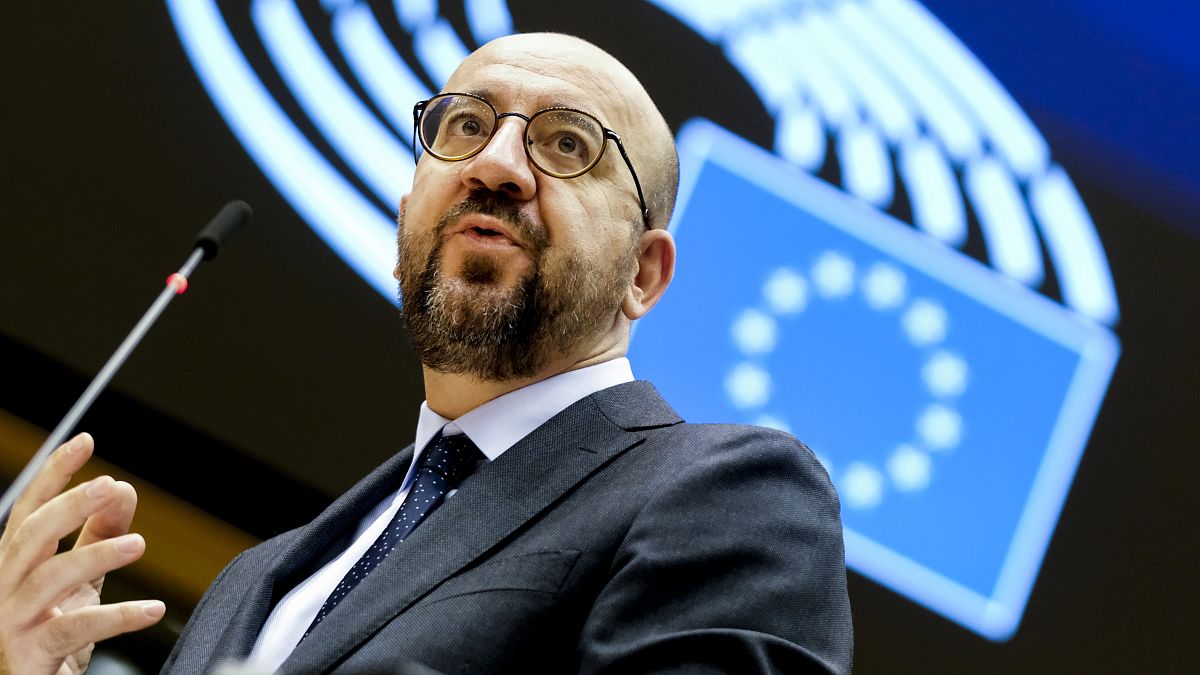The European Council president Charles Michel is setting out a strategy to get Europe to coordinate its efforts in the battle against the pandemic, however, the second wave is forcing many countries to lockdown.
As the EU finds itself in the grip of a COVID-19 second wave, cooperation is key. That's the message of Council president Charles Michel ahead of a virtual meeting of heads of state and government on Thursday.
Speaking to Euronews, Michel said that a major part of the fight against the pandemic will be rapid testing. He said EU leaders must agree as fast as possible on rapid tests, such as saliva tests.
"Until now, we only had these famous PCR tests which are tests that take several hours before we can get the results. Rapid tests can be a game-changer, they can change our strategy and that is why we must cooperate on the approval of rapid tests to organize their mutual recognition. It could also help us restore the free movement of people if these rapid tests can be deployed effectively."
Beyond rapid testing, the race for a vaccine is critical to getting life back on track. But, Michel warns, it won't be a magic wand.
"Vaccines will need to be deployed effectively across Europe, identifying priority populations, like the elderly or people with chronic diseases, who are most vulnerable," explains Michel.
Since March, the way EU countries managed the crisis as well as how the EU itself responded has come in for criticism. However, Michel defends the bloc's track record:
"Immediately, the European Union took the lead in the world to ensure that a vaccine could be developed in record time. We will probably succeed in just one year in deploying vaccines, whereas traditionally it takes ten years to be happy with a vaccine that is produced."
However, he reiterated that when it comes to health, the EU does not have the power to act.
"The reality is very simple - competence in matters of health is primarily a national competence and in certain European countries, it’s even a local competence or a regional competence. European powers based upon the Treaties, are limited in the area of health."
While this can go some way to explain the fractured approach in the early months of the pandemic, the second wave should have left leaders with some lessons learned. However, questions have arisen over the wisdom to open up travel in the summer months.
"First of all, let me remind you that during the summer, we did not do things as we normally would. There were a lot of restrictions during the summer. There have been a lot of messages given to respect social distance, to respect barriers, to wear masks in the right places. But it is certain that we had to try to find the correct balance."
But he admits in hindsight, not everything was 'done perfectly'. But the pressure to save economies dependent on tourism was strong.
"In Europe in June, in July, at a time when, in many countries, the situation was stabilized in terms of infections. There was also great expectation, especially from economic actors, to be able to restart social and economic life. And this is the whole difficulty we are facing."
Figures from the European Centre for Disease Control and Prevention make for stark reading. Belgium, Michel's home country, and home to a variety of EU institutions, is now the worst in Europe in terms of cases for 100,000 inhabitants.
"Every day counts," says Michel, he adds that painful decisions will have to be made in order to save lives. He pins the success of striking a balance between saving economies, freedom of movement and saving lives on coordinating at EU level.
Michel points to the financial firepower being set aside to help the EU out of the crisis.
"Never before has Europe mobilised as many financial resources. Proportionally, this is much more than what the United States is doing in terms of stimulating its economy, much more than China is doing in terms of stimulating its economy."
However, the trillion-euro coronavirus recovery package agreed by EU leaders in July is facing tough scrutiny in the European parliament. He hopes MEPs will agree in the next few days on the final figure, so that money can make it to those in need by early next year.
